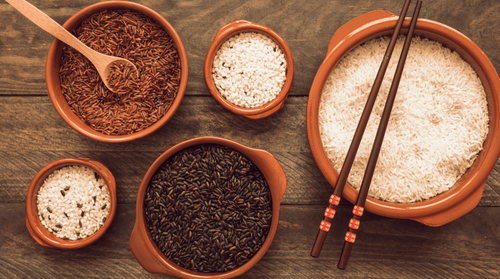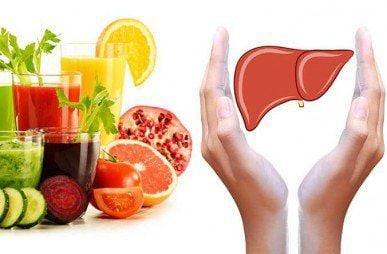Bitter foods are often unpopular due to their strong, unpleasant taste. However, some bitter foods are incredibly nutritious and contain many beneficial plant compounds that can help reduce the risk of cancer, heart disease, and diabetes, as well as support gut, eye, and liver health.
1. Bitter melon
Bitter melon, or bitter gourd, is a green fruit similar in shape to a cucumber but with a bumpy skin and a very bitter taste. Bitter melon is rich in phytochemicals such as triterpenoids, polyphenols, and flavonoids, which have been shown to slow the growth of cancer cells. This fruit is also used to lower blood sugar levels in people with diabetes.
A study found that consuming 2,000 mg of bitter melon powder daily can significantly lower blood sugar levels, although not as effectively as conventional diabetes medications. Therefore, there is insufficient evidence to recommend bitter melon as a replacement for diabetes medication.
Like most bitter foods, bitter melon is also high in antioxidants, which help protect cells from damage caused by free radicals, reducing the risk of cancer, heart disease, and diabetes.
2. Cruciferous Vegetables
Many cruciferous vegetables have a bitter taste, such as broccoli, Brussels sprouts, cabbage, kale, turnips, and lettuce. For those wondering if bitter foods are good for you, these vegetables contain a compound called glucosinolates, which gives them their bitter taste and offers numerous health benefits.
Studies have shown that glucosinolates can slow the growth and spread of cancer cells. Some data suggest that people who eat a lot of cruciferous vegetables have a lower risk of cancer. However, it's important to note that individual genetic differences, as well as the levels of glucosinolates in vegetables and cooking methods, can affect the results of studies.
In addition to their potential anticancer effects, glucosinolates in cruciferous vegetables help the liver process toxins more efficiently, reducing the negative impact of harmful chemicals on the body. Although there are no official recommendations, some studies suggest that eating at least 5 servings of cruciferous vegetables per week provides the most health benefits.

3. Dandelion Greens
Many people think of dandelions as mere weeds, but in fact, their leaves are edible and highly nutritious. Dandelion greens are medium-sized, dark green leaves with jagged edges. They can be eaten raw in salads, stir-fries, or added to soups and pasta. Due to their bitter taste, dandelion greens are often paired with other flavors, such as garlic or lemon.
Although there is limited research on the specific health benefits of dandelion greens, it is clear that they are a nutrient-dense food, rich in calcium, manganese, iron, and vitamins A, C, and K. Dandelion greens also contain the carotenoids lutein and zeaxanthin, which protect the eyes against cataracts and macular degeneration. Moreover, dandelion greens are an excellent source of the prebiotics inulin and oligofructose, promoting the growth of healthy gut bacteria.
4. Citrus Peels
Citrus fruits such as lemons, oranges, and grapefruits are typically sweet or sour, but their zest and pith have a bitter taste. This bitterness is due to flavonoids, substances that protect the fruit from pests and offer various health benefits to humans.
Citrus peels have the highest concentration of flavonoids, with two potent antioxidants being hesperidin and naringin. Animal studies have shown that citrus flavonoids may help fight cancer by reducing inflammation, improving detoxification, and slowing the growth and spread of malignant cells.
To incorporate citrus peels into your diet, you can enjoy them dried, or as a powder mixed into spice blends, or added to candies and desserts.
5. Cranberries
Cranberries are tart, red berries that can be eaten raw, cooked, dried, or juiced. They contain a type of polyphenol called proanthocyanidins, which can prevent bacteria from adhering to body tissues. This property helps reduce tooth decay caused by bacteria, lower the risk of H. pylori infection in the stomach, and even prevent E. coli infections in the digestive and urinary tracts.
A 90-day study showed that drinking about two cups (500ml) of cranberry juice daily can eliminate H. pylori bacteria in the stomach, three times more effective than a placebo. Additionally, a dose of cranberry extract containing at least 36mg of proanthocyanidins significantly reduces the frequency of urinary tract infections, especially in women.
Besides their antibacterial properties, cranberries are also rich in antioxidants, containing the highest concentration among 24 common fruits. This is why regular consumption of cranberry juice is beneficial for heart health. Specifically, it helps reduce inflammation, lower blood sugar, blood pressure, and triglycerides.
6. Cacao

Cacao powder is made from the seeds of the cacao tree and has a very bitter taste when consumed unsweetened. It is commonly added to many desserts, mixed with cocoa butter, cocoa liquor, vanilla, and sugar to make chocolate.
Research has found that people who eat chocolate at least 5 times per week have a 56% lower risk of heart disease compared to those who don't. This may be due to the polyphenols and antioxidants in cacao, which help dilate blood vessels and reduce inflammation, thereby protecting the heart.
It is also a rich source of trace minerals, including copper, manganese, magnesium, and iron. Unsweetened cocoa powder and dark chocolate contain the most antioxidants and the least sugar, so they should be included in a healthy diet.
7. Coffee
As one of the most widely consumed beverages worldwide, coffee is also a top source of antioxidants in the typical diet.
Like most bitter foods, coffee contains many polyphenols, which give it its unique flavor. The most abundant polyphenol in coffee is chlorogenic acid - a powerful antioxidant that offers many health benefits, including reducing cell damage and preventing the risk of heart disease and diabetes.
Surveys have shown that drinking 3-4 cups of coffee per day can reduce the risk of death by 17%, the risk of cancer by 15%, and the risk of heart disease by 18% compared to not drinking coffee. According to a separate analysis, consuming 1 cup of coffee per day reduces the risk of type 2 diabetes by 7%.
Some studies have also shown that coffee contains caffeine, which may prevent neurological disorders, including Alzheimer's and Parkinson's disease.
8. Green tea
Green tea is also a popular beverage, widely consumed around the world. They have a natural bitter taste due to their high content of catechins (epigallocatechin gallate, or EGCG) and polyphenols. Animal studies have shown that EGCG can slow the growth of cancer cells, but it is unclear whether this effect occurs in humans.
Green tea also contains many types of polyphenols, antioxidants, and anti-inflammatory compounds. These compounds inhibit free radicals and reduce inflammation, thereby reducing the risk of heart disease. In fact, drinking just one cup of green tea per day can reduce the risk of heart attack by nearly 20% and promote weight loss. Green tea is better than black or white tea due to its maximum amount of antioxidants.

9. Red wine
Red wine contains two main types of polyphenols: proanthocyanidins and tannins, which give it its deep color and bitter taste. The combination of alcohol and polyphenols can reduce the risk of heart disease, decrease the oxidation of cholesterol, reduce blood clotting, and help dilate blood vessels.
Some recent studies have also shown that red wine can be good for the gut. Specifically, drinking 2 glasses of red wine daily for a month can increase the number of healthy gut bacteria. The growth of beneficial gut bacteria is directly linked to lower cholesterol levels and reduced inflammation.
Other benefits of drinking red wine include: increased longevity, reduced risk of diabetes, and osteoporosis. However, it is important to note that excessive alcohol consumption can lead to liver damage and other health problems, so it should be consumed in moderation.
Please dial HOTLINE for more information or register for an appointment HERE. Download MyVinmec app to make appointments faster and to manage your bookings easily.
Reference source: healthline.com













